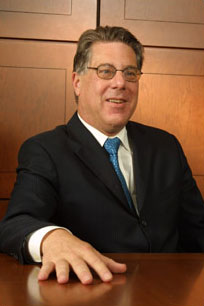
Millions of Americans frantically sought information during the immediate aftermath of the September 11 attacks. The general populace wanted to know all they could about both the history and background of those who might have perpetrated these crimes, as well as the details of the damage. Following the East Coast terrorist attacks, it was estimated that 100 million American sent or received e-mails related to the terrorist activity. Those who had friends, family, or co-workers who might have been in the World Trade Center, at the Pentagon, or on one of the hijacked planes, felt an even greater need for immediately uncovering the news.
Increasingly, the primary news sources in times like these, is the Internet. Some go to nytimes.com or cnn.com, and they go there first before they would actually go to a print edition of the New York Times, or turn on their TV and switch the channel to CNN.
With increased security in every walk of life since the attacks, it is only natural that the Internet would be subject to the same strictures. Traditionally, the right to free speech has faced the strongest challenges during times of war. As a result, a number of Web sites, both related to terrorism and not, have been shut down or restricted by both government and commerce.
“To address the Internet issues raised by September 11th, you need a broad background understanding of both the e-commerce business context as well as the some of the technological underpinnings of the Internet.”
The key argument against such restrictions is that the populace becomes less informed about how their money is being spent, and less informed about environmental dangers in their own communities. “It is important to note that there is nothing new here except a greater awareness of the Internet,” says Richard Warner, director of “The Internet after September 11,” a certificate program at the Chicago-Kent College of Law. “Compare a non-Internet free speech issue. Suppose I both publish a book that teaches people how to make a bomb, and put the same material on a web site. The government tries to ban the book and shut down the web site. The First Amendment free speech issues are the same in both cases. There is no difference just because the Web is involved in one case, nor is there a difference because of September 11, it’s just that our sensitivity has changed.”
The certificate program is geared toward professionals working in law or business, and teaches a broad background behind the overall field of e-commerce. “To address the Internet issues raised by September 11th, you need a broad background understanding of both the e-commerce business context as well as the some of the technological underpinnings of the Internet. You can’t properly balance individual rights and concerns about privacy against increased security and effective government surveillance unless you know what is possible technologically and what e-commerce needs to flourish,” Warner says in explanation of the program.
The goal of the certificate program is to provide business professionals and lawyers a an education of the risks involved in e-commerce. The issues covered in the course that is co-taught by seven other Chicago-Kent professors under Warner’s leadership include balancing increased security against both individual rights and increased costs, the role of intellectual property on the Internet, and the obligations of web sites and networks to control access, profitability, legal liability, and potential of excessive costs. “One of the issues that was big, even before September 11, is where do we draw boundaries of Cyberspace? When do I have the right to tell you you cannot come into my web site? When do I have an obligation to exclude you from my Web site? After September 11 these boundary-drawing activities become even more critical. And, while some of the laws are new and the context might be a little different, this program should address the need of providing a background for the plusses and minuses of doing business in the online business world.”
Though this e-commerce program, formerly called “Legal Aspects of E-Commerce,” has existed at Chicago-Kent since the late 90s’ Internet boom, the revised course will be changed due to the increased interest in security issues. As a result, IIT’s law school has named this current version of the course “The Internet after September 11.” The weekly sessions are divided up into different professor’s expertise, with Warner teaching about a third of the sessions. Contracting, rights to exclusion, security issues, intellectual property, privacy and consumer protection, and jurisdiction, for instance, are all divvied up among the team.
E-commerce, and the Internet after September 11th in general, is in the national media spotlight regularly this year. Gregory Sidak, resident scholar at the American Enterprise Institute, has written an essay on how September 11 will change constitutional law, and says that he doubts there will be legislation on Internet surveillance soon. “All the heavy lifting in this issue will be done in the analysis of the means used to pursue the government’s interest. The government’s motive is obviously to prevent future attacks like the ones in New York and D.C. Whether their reactions are over-broad or not is going to be the real debate in the courts. This includes the rounding up of various Arab-Americans to imposing different screening methods at airports, to use of the Internet.”
Part of the reason that the legal community doesn’t know exactly where this is going is that the Internet is viewed as being so much less regulated than other means of communication. This means that the themes for successful litigation in this field are going to be much more slippery than in other arenas. “So far, it’s looking more and more like courts might begin viewing cyberspace as though these virtual properties resemble real properties. So you could have a case where someone whose site gets busted for possibly abetting terrorism claims that these raiders were unwanted guests on his property,” Sidak adds.

But as far as e-commerce goes, Warner, who also teaches contracts at Chicago-Kent, doesn’t believe that the Internet is as unregulated as people think, and that September 11 hasn’t changed that. “People think that it’s the Wild West, but I think that’s just a romantic notion,” Warner says. “But take any example of a commercial web site, like Borders Books and Music’s Web site. Truth in advertising laws pertain to them just as they do in their traditional establishment that sells books in their stores. All the consumer protection laws pertain to their web site. It is simply false that web businesses are unregulated.” There are also different state jurisdictional issues, having more to do with taxation, having to do with where the seller and buyer in an online transaction are located, as well as legal issues surrounding the use of communications in Cyberspace, such as mass e-mail distribution, or Spam.
“Spam e-mail is another example of extensive regulation. If I send you an e-mail that attempts to defraud you into giving me money, as many spam e-mails do, I have violated several laws,” Warner says. One development that is new after September 11th is illustrated by the USA PATRIOT Act. It mandates a closer cooperation between the business and government than the business community would have tolerated prior to September 11th. The legislature will look more closely at Internet security, identification, and what kind of restrictions can be placed on service providers.
Examples of this increased cooperation are plentiful both here and abroad. Azzam.com, for instance, was a site that provided news and information about Jihad and stories about martyrs killed in Afghanistan, Bosnia and Chechnya. Though it doesn’t condone acts that are illegal, the web site noted that, according to Islamic tenets, “martyrdom operations are permissible.”
Azzam.com was shut down this year by multiple Internet Service providers. According to the Electronic Frontier Foundation, a nonprofit group that monitors free speech issues in the Digital Age, at least one of these ISP shutdowns was in response to an FBI request.
In America, the LA Police Dept. and federal agents shut down the web site of 18-year old Sherman Austin. His site, Raisethefist.com, was an alternative media site that explored ideas related to anarchism, activism, and current events not reported by mainstream media. The site’s publishing mode was an open forum for the public, and had housed information that some claimed could be used for the creation of explosive devices. This loaded site determined fully armed federal agents and policemen to confiscate some of Austin’s property (namely, computers), and shut down the sites.
But it’s not just precautionary measures against privately managed sites that are being taken. Until September 11, locations and layout of presidential and military command centers were readily accessible on the World Wide Web, to which many experts cried foul. Much of the information would have remained classified in the pre-Internet age. Former CIA director James Woolsey, when told that details of military command centers were on the web, stated that they should never have been publicly available in the first place, and that even he had no idea that anyone with an Internet connection could access the information. Many of these Web sites were created by nonprofit groups, military buffs, and even the government itself. Since the terrorist attacks, some of the pages have been removed or shut down, but many remain.
Since September 11, the Federation of American Scientists has taken down over 200 web pages that contained sensitive information about the White House and other facilities. A similar reassessment is taking place across government agencies. Sites that contain information that could be used by terrorists are being changed or are now requiring password entrance for information retrieval.
The government has gotten in on the belt-tightening as well. The Nuclear Regulatory Commission shut down its Web site earlier this year, because it contained potentially damaging details about U.S. nuclear plants. The Environmental Protection Agency no longer provides information about chemical plants’ risk-management plans. The Department of Transportation recently restricted access to the National Pipeline Mapping System, through their Office of Pipeline Safety. This system shows the locations of natural gas pipelines and, most critically, information about where pipeline leaks might put drinking water at risk. The Army Corps of Engineers conducted a similar cloaking of one of their web sites, as well (it contained information about an underground military command center near the nation’s capitol).
Every element of the Internet has been affected in some way. Partly because of the heavy media consumption in the wake of the attacks, and partly because of the ineffectiveness of business to be able to make a profit off the Web, every major search engine has transitioned from a mere search engine to a portal. This means that in the days of the Internet gold rush, for instance, the search engines’ home pages contained a box to find keywords that you would enter on a desired subject. Now, instead of a mere offer to search the World Wide Web based on keywords that you enter, these home pages are now filled with content. This branded content ranges from product links, advertisements, and, especially, news links.
These changes in how the Internet behaves as well as how the legal aspects of the Internet are changing, makes the certificate program a constant site of evolution, according to Warner. “Constant changing pattern in the laws, as well as in the technology make this a tough one to teach. As professors in the course, we all learn about this, and we have a remarkable group of people working on this; at the helm of this project alone we’ve got five or six people who are directly or indirectly working in the field, and it’s pretty rare for an educational institution to have that.”